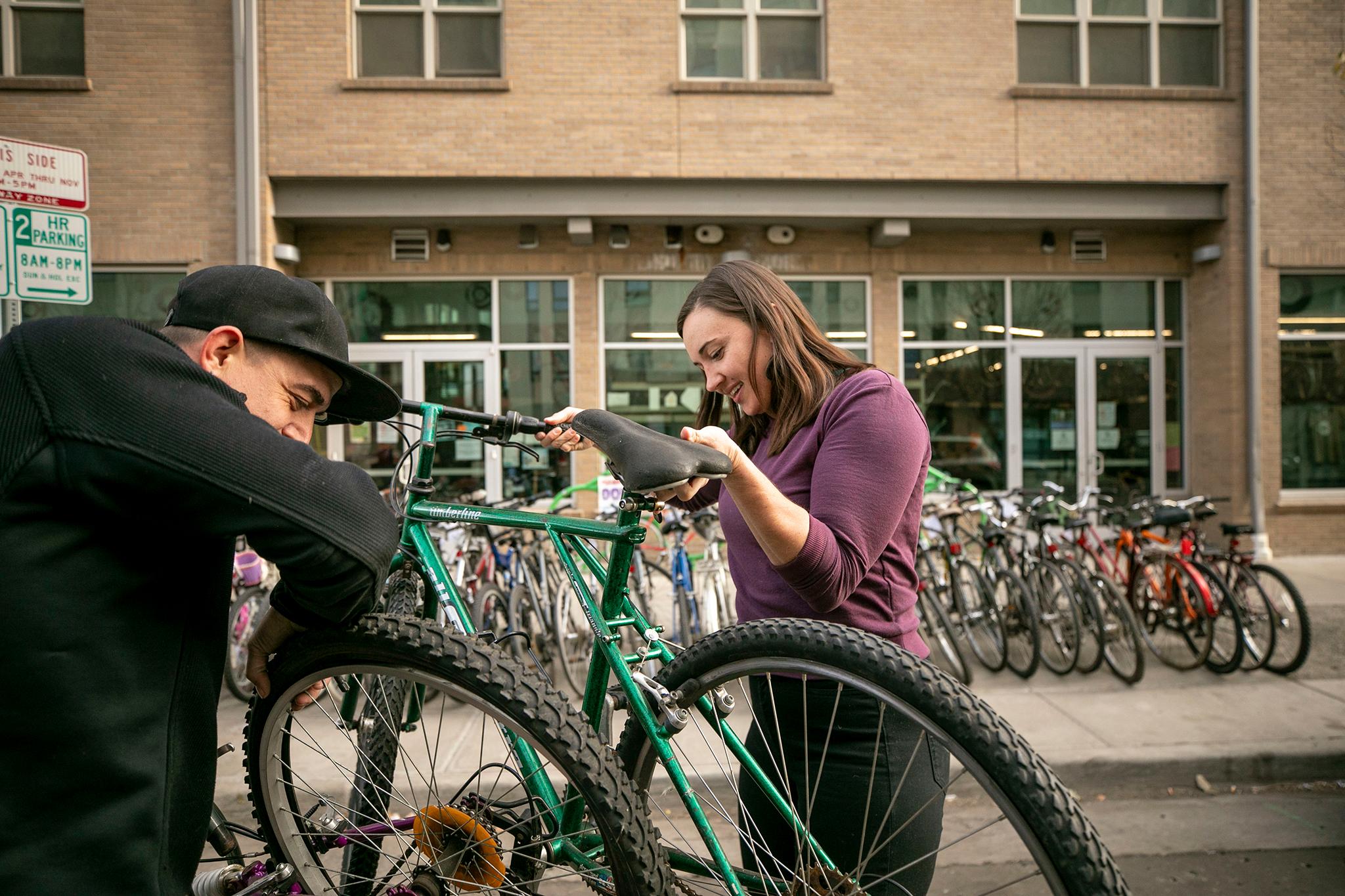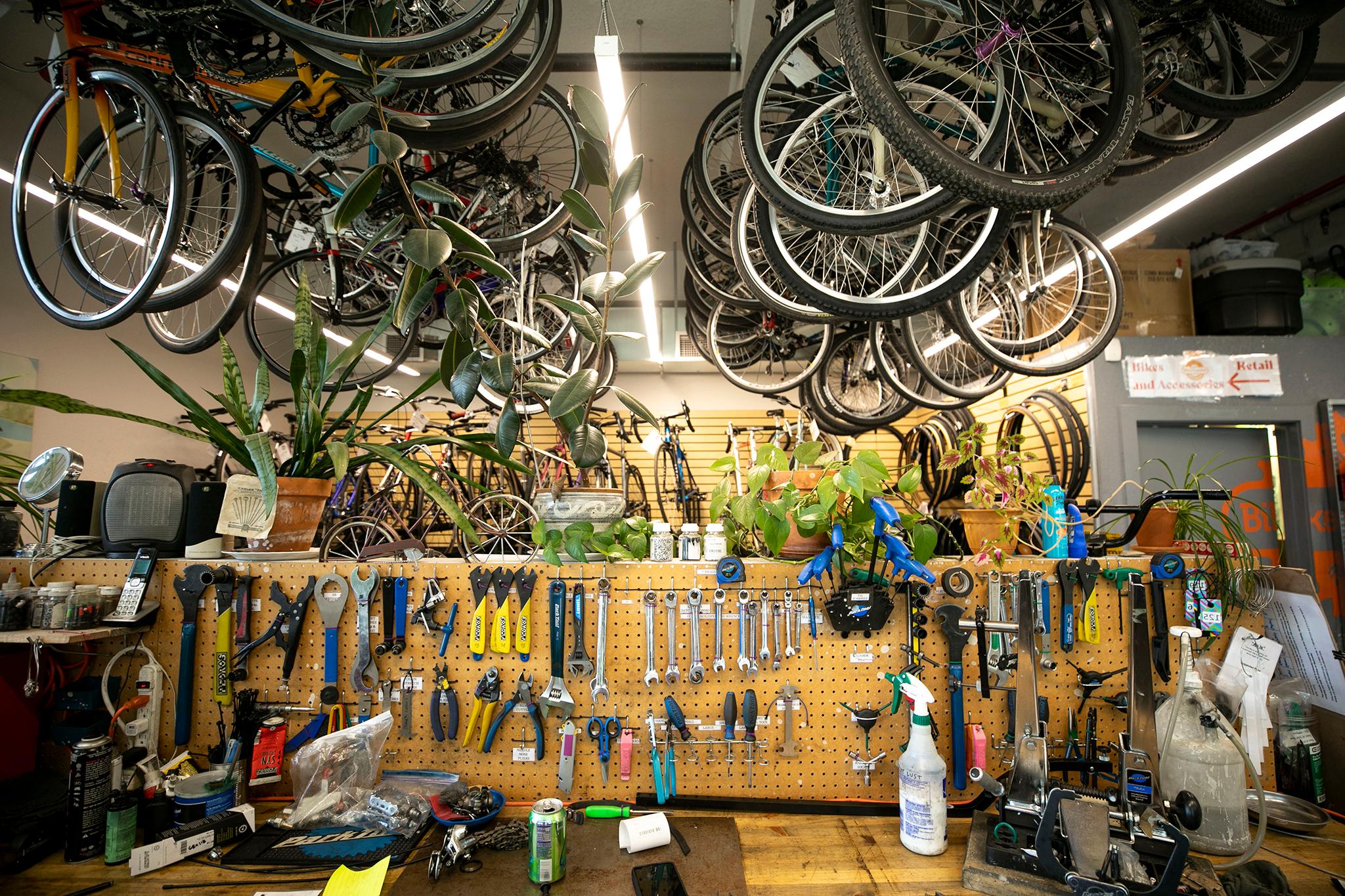Abby Bohannan fell in love with her bike when she was in school -- a time when she couldn't afford the bus fare. As she used it to get around, she also learned how bikes work and started doing her own repairs.
"Being able to know about my bike was really empowering, and really made me feel like I had a lot of agency over my own transportation," she said.
Now, Bohannan helps others gain the same sense of agency. She's the Executive Director at Bikes Together, a community nonprofit in La Alma Lincoln Park that helps people access high-quality bikes at a low cost and teaches them how to make repairs.
Bikes Together takes donated bikes and refurbishes them to resell at cost-flexible price points or give away for free in partnership with community groups. If the bikes are in rough shape, they reuse as many component parts as possible and recycle the rest.
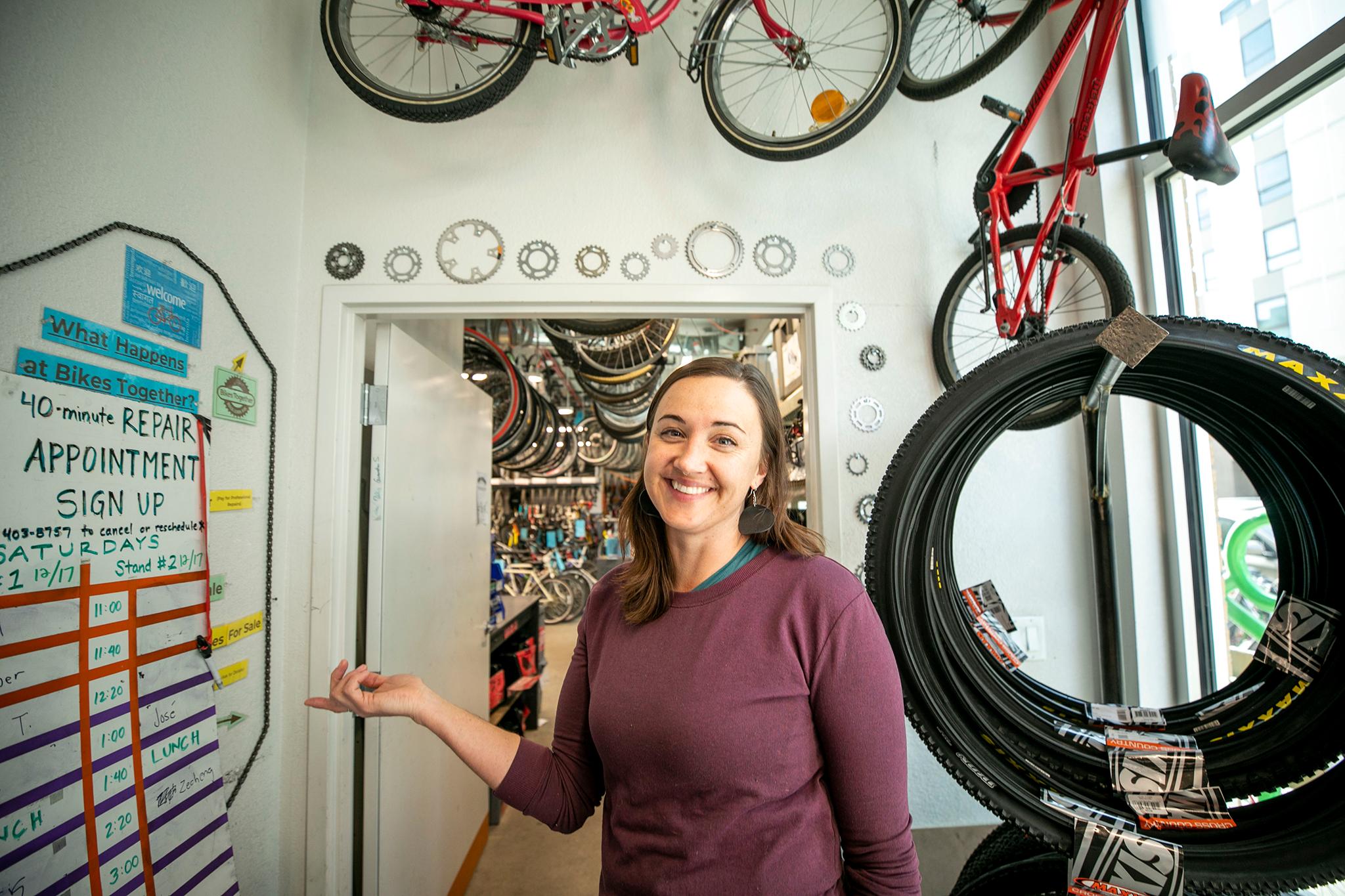
The mechanics at Bikes Together use the refurbishing process as an opportunity to teach community members how to fix their own bikes.
People can book appointments for repair workshops to fix their bikes and learn along the way. Once a month, Bikes Together hosts a repair workshop specifically for women, non-binary, transgender, intersex and other gender-nonconforming people, who are often underrepresented in cycling and mechanic work.
"Certain folks are socialized to not feel comfortable using tools and being able to do that well, and so I think it's really empowering to know that you can learn how to work on your bike, you can find the resources to do that," Bohannan said.
Program Director Mac Liman started sharing bike tools with neighbors in La Alma Lincoln Park, which led her to learn more about mechanics and ultimately get involved with Bikes Together. She says learning bike mechanics often gives people skills they take beyond cycling.
"When people fix something here they go home and think, 'Oh, maybe I could fix something else,'" Liman said. "That's really empowering, really exciting to be a part of that process."
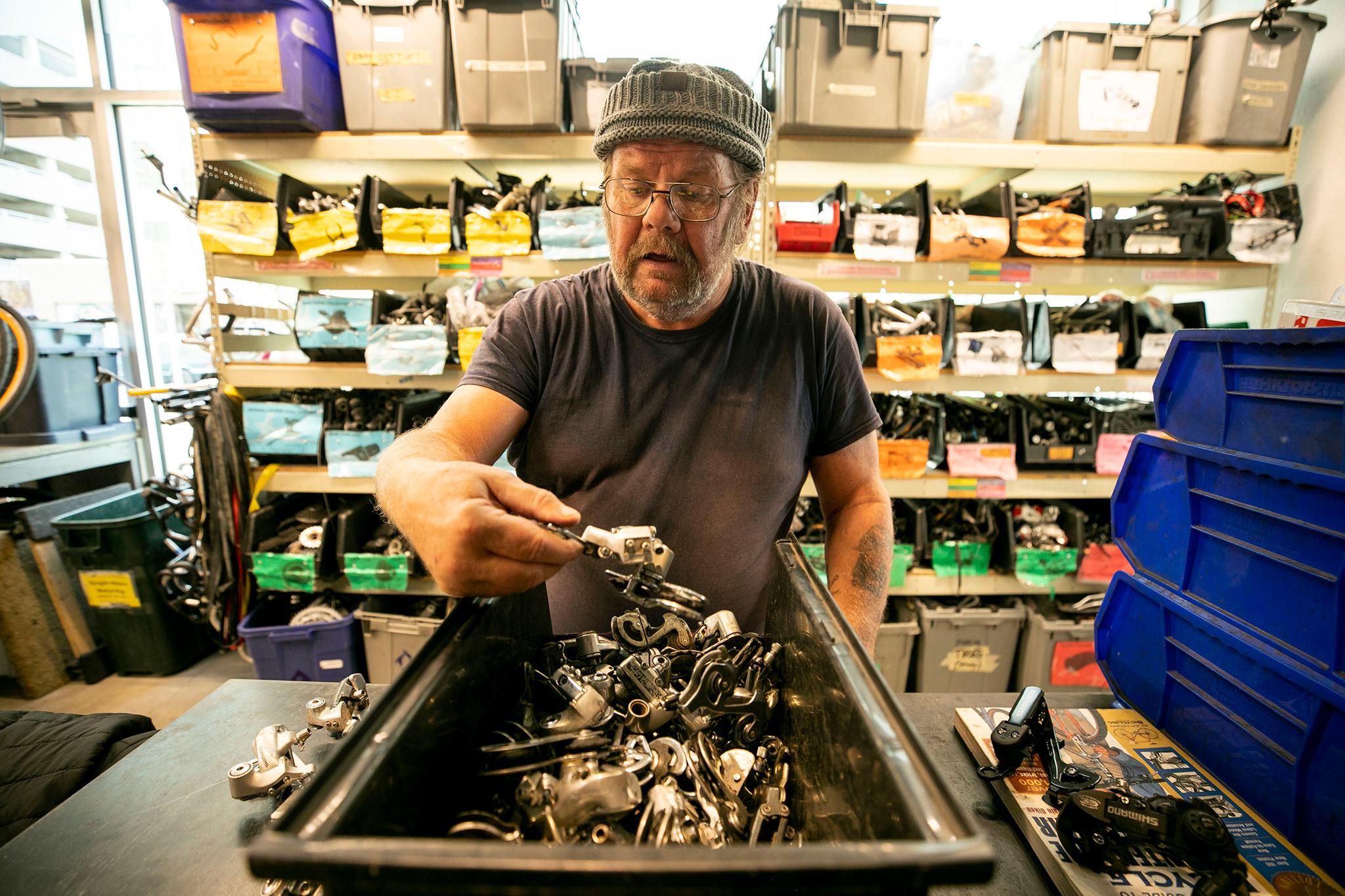
A lot of the people who come to Bikes Together rely on their bikes for day-to-day transportation, so the nonprofit prioritizes giving people rides that can last.
Bohannan said that many cheaper bikes sold these days are designed to only last a few months. Sometimes, they aren't built with parts that are repairable. But a lot of people can't afford the higher quality, more durable bikes, and end up shelling out a few hundred dollars every few months to replace their bikes.
People aided by Bikes Together often get like-new bikes at 40 to 60% of the original cost, thanks to a cost-flexible model. And in partnership with local organizations, Bikes Together also gives away bikes, lights, locks and helmets for free to people in need.
"It really makes getting a high-quality bike really affordable," she said. "We also make sure that all the bikes that we sell are designed to last at least another 30 years."
The shop also sells used parts for what people can pay.
"This is a bit of like a junkyard treasure hunt," Bohannan said. "We have folks who are experiencing homelessness who come by because somebody stole their wheel and they need a new wheel, we have folks who are new to Denver, we have students who need a bike to get around, we have parents who come by with their kids."
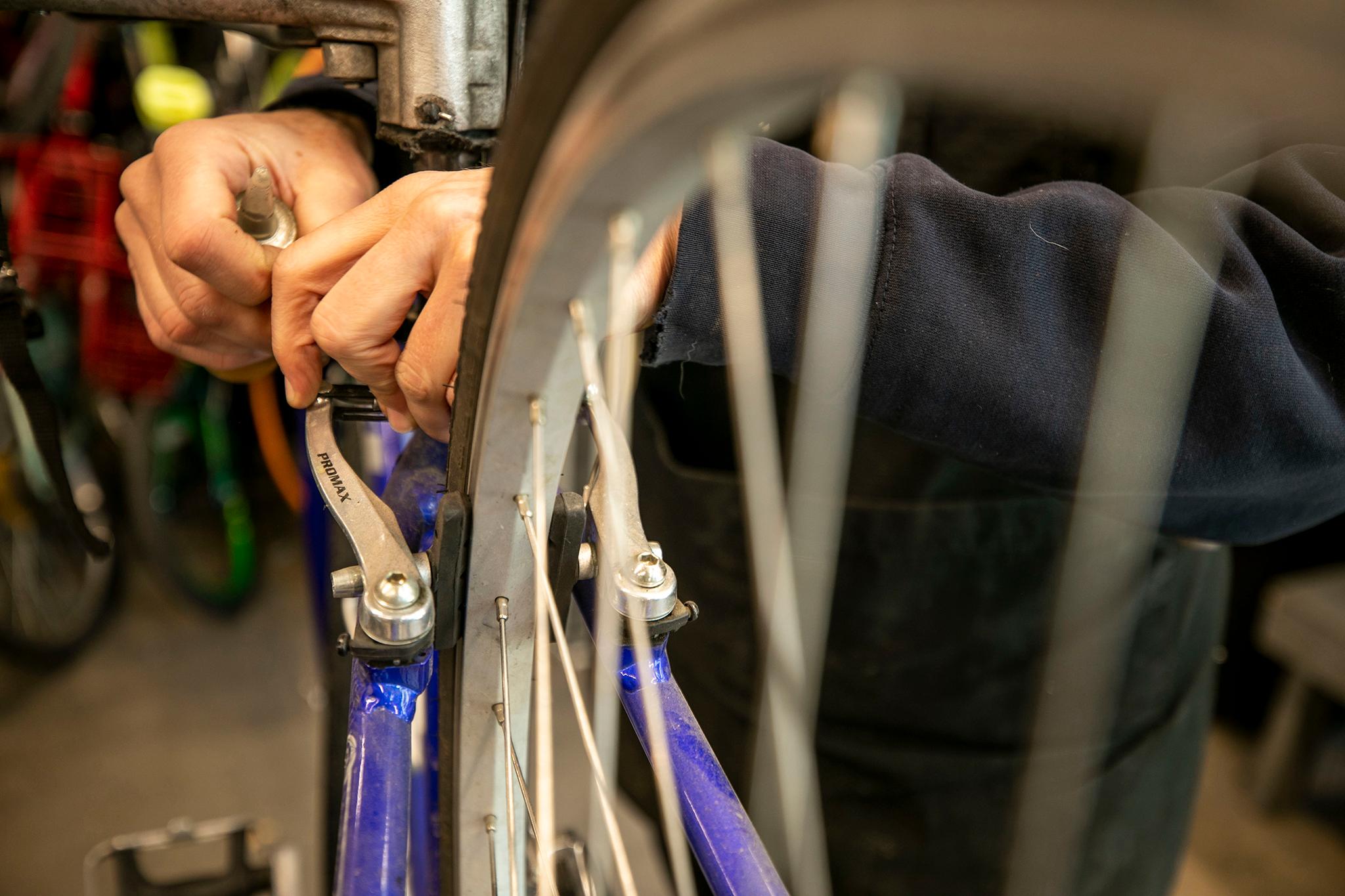
On a typical weekday, Bikes Together is open for sales, donations and repairs.
The sidewalk outside is lined with bikes of all kinds, from tricycles to mountain bikes and everything in between. People filter in and out, some make a beeline for the used parts section. Shop mechanics work on refurbishing bikes. Richard Stiffler is helping a friend start a bike shop, and often comes in for spare parts and to learn repair tips.
"This is the place to come if you need a bike," he said. "They're great, they're patient and they'll work with anybody."
At one point, a man drives up in a truck with a handful of bikes in the back. He says he's heard it's the spot to go to.
"It's Christmas time, everybody's in need, no reason to let them go to waste," Bo Richardson said. "If they go in the trash, nobody else gets them. If you donate them, hopefully it goes to a better cause and somebody can get a bike that actually needs one."
